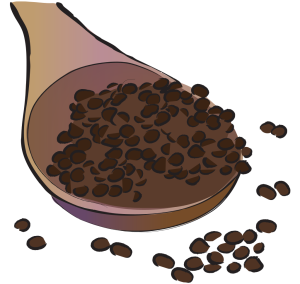Bu Gu Zhi
English Name: psoralea fruit
Pharmaceutical Name: Fructus Psoraleae
Medica Category: Yang-Tonifying Herbs
Properties: Bu Gu Zhi enters the Kidney and Spleen channels; it is bitter and acrid in nature and very warm in temperature.

What is Bu Gu Zhi?:
The Chinese Herb Bu Gu Zhi is the dried fruits from Psoralea corylifolia, a small annual plant native to India and West Asia (but also found in warm valleys in Guizhou, Sichuan and Yunnan Provinces in China). It blooms with pale purple flowers in summer that produce fruit in the fall. This fruit is harvested when ripe and then dried for use as medicine. It is often fried in salt water—this directs the herb to the Kidney channel and also reduces its drying effect on the body (see below).
Traditional Chinese Medicine (TCM) Therapeutic Actions of Bu Gu Zhi:
Bu Gu Zhi tonifies the Kidneys, strengthens Yang, stabilizes Jing, and astringes urine to address Kidney Yang deficiency that may manifest in such clinical presentations as: premature ejaculation, enuresis, urinary frequency, and cold and painful lower back and extremities.
In its action to tonify the Kidneys it can be added to formulas that address mild respiratory disorders in which there is shallow breathing with difficulty on the inhale (i.e. helps Kidneys grasp Lung qi and pull the breath into the body).
Bu Gu Zhi also warms and strengthens ming mien (Life Gate Fire).
Bu Gu Zhi warms the Spleen to address deficiency and cold in the middle jiao and move sluggish/stagnated qi. This often presents clinically with epigastric and abdominal coldness, fullness, and pain, diarrhea, and excessive salivation.
Bu Gu Zhi warms the Spleen to address compromised transport & transformation functions due to deficiency of Spleen yang. This presents clinically as chronic diarrhea, borborygmus, bloating, and poor appetite.
–safety/clinical notes:
Use with caution during pregnancy.
Long-term use can cause yin-deficiency symptoms such as dry mouth, dry tongue, and sore throat.
Contraindicated for persons with yin deficient heat, constipation, nocturnal emissions, hematuria, cystitis or UTI, red eyes, and a bitter taste in the mouth with a dry tongue.
